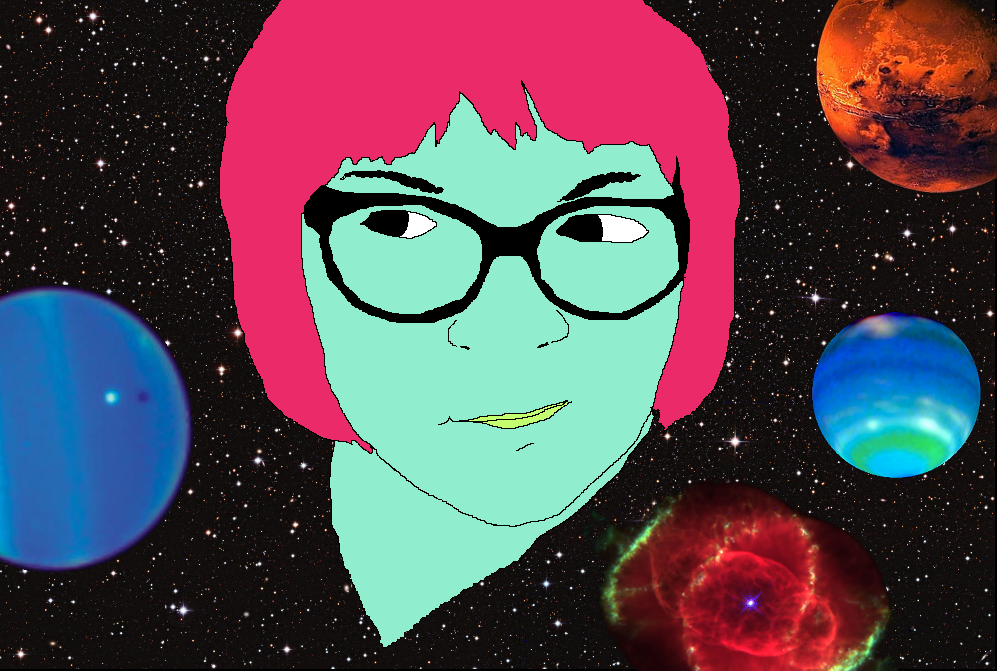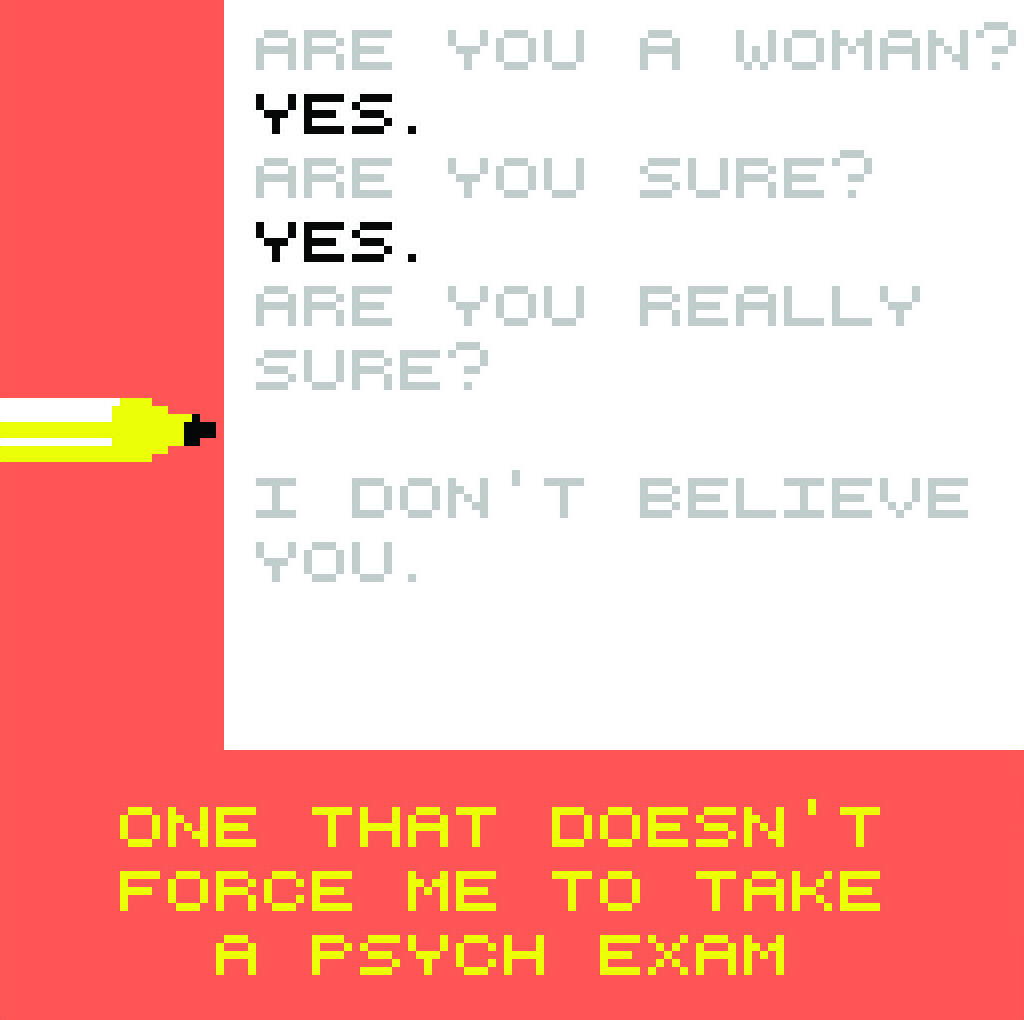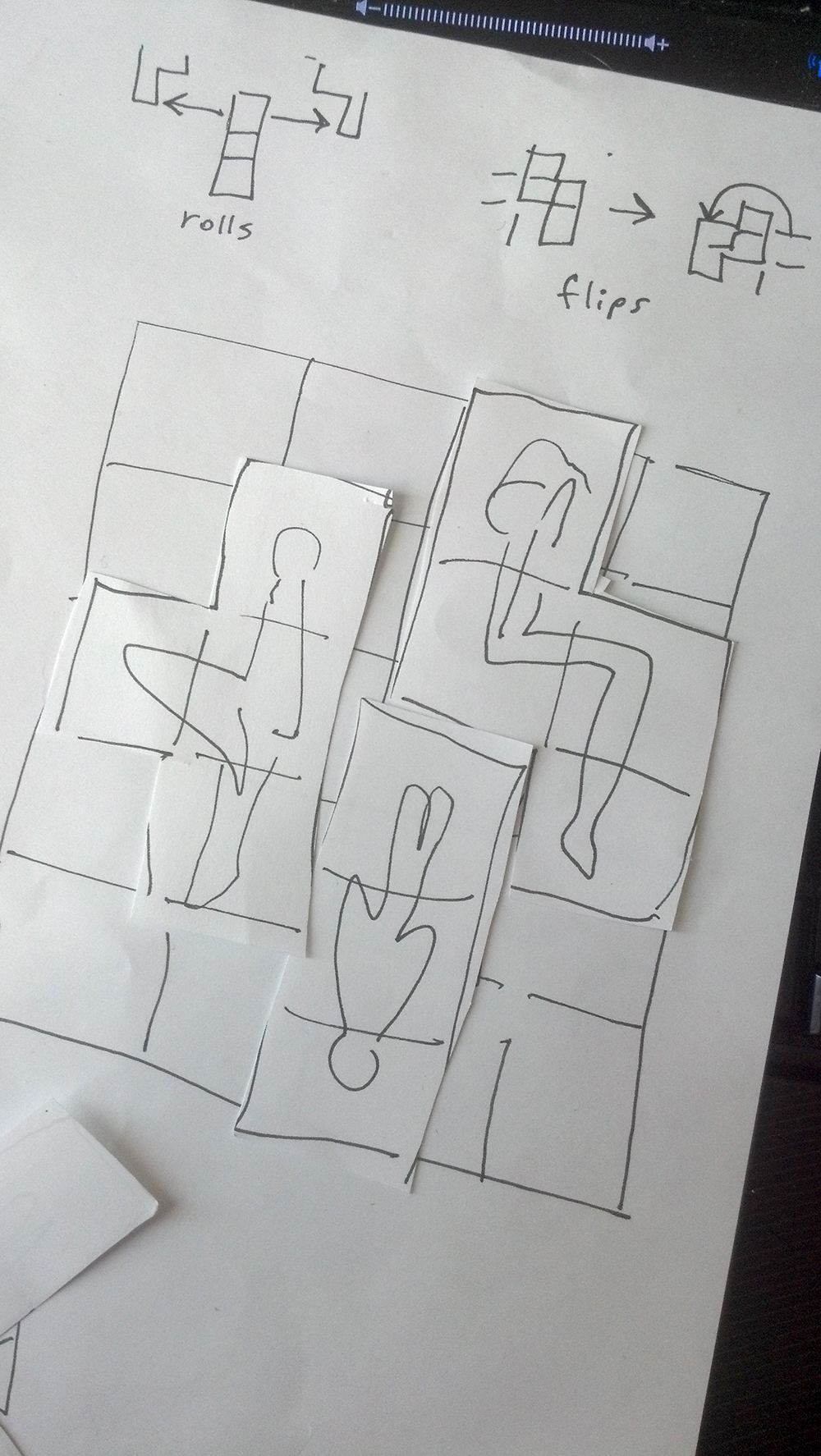FEMICOM Museum / Blog /
Anna Anthropy: Choosing her own adventure
Posted March 23, 2013 by Rachel Weil
Game developer, theorist, writer, and indie provacateuse Anna Anthropy wants to see new kinds of video games. She has been both leading by example through the creation of her own games on queer and transgender experiences and providing guidance for other storytellers and would-be bedroom coders through her website and her recent book *Rise of the Videogame Zinesters:* a book about "how everyone can make games and why everyone should make games." I had a chance to catch up with Anna about some of her past and current projects.

Some of Anna's most well-known games include Mighty Jill Off (2008), a brutally-challenging platformer, and Lesbian Spider-Queens of Mars (2011), an in-browser game for Adult Swim's website. Anna describes working with Adult Swim as a fun and "really surreal experience. They kept trying to censor the game, like by giving the spider-queen a bra, or to take the word 'lesbian' out of the title." Both games have the pixelated, lo-fi look of 8-bit games from the '80s and '90s. Anna employs this aesthetic both to provide familiarity to the player as well as to subvert the narratives of classic games. "As a trans woman who was socialized as a boy, no one ever pushed me away from video games in the same way that a lot of cis girls were," she notes, "so I always had this deep internalization of the aesthetics of video games that has informed all my work. But those games were never particularly queer: video games as they stand are pretty fucking alienating to me. So a lot of my work is in queering videogames, in rewriting the damsel-in-distress narrative."
In 2012, Anna's Flash game dys4ia was released on Newgrounds. The game, nominated for a 2013 IGF award for Excellence in Narrative, is a collection of autobiographical mini-games about the challenges of undergoing hormone replacement therapy. What most excites Anna about the game's reception is its use as a teaching tool. She says that dys4ia has been "taught in gender studies classes, and sex educators in Chicago told me they used it to teach people about transition."

Earlier this week, Anna released yet another game: Triad. Triad, she explains, is a puzzle game inspired by "the most impossible task in the human experience": fitting three people into the same bed. Like Lesbian Spider-Queens of Mars and dys4ia, Triad features a retro, pixelated look and simple gameplay controls. A prototype sketch of the game can be seen here.

Inspired to start making your own games? Anna recommends the free, drag-and-drop hypertext game creator called Twine. "Twine is like THE place to get started making games, as far as I'm concerned. It involves zero programming and is sort of like writing a choose-your-own-adventure. Everyone can write." Because of the program's accessibility, Twine has helped users create games about a wide range of issues that mainstream games rarely address, such as body image and queer identities. "It's this alternate-universe version of video games that was largely built and directed by women. It's beautiful and nuts." You can download Twine here and check out Anna's Twine tutorial here.
Be sure to keep tabs on Anna's work through auntiepixelante.com. You can find her books Rise of the Videogame Zinesters and the newly-published choose-your-own-adventure book Star Wench on Amazon.
Collection 




© 2012-2023 FEMICOM Museum
